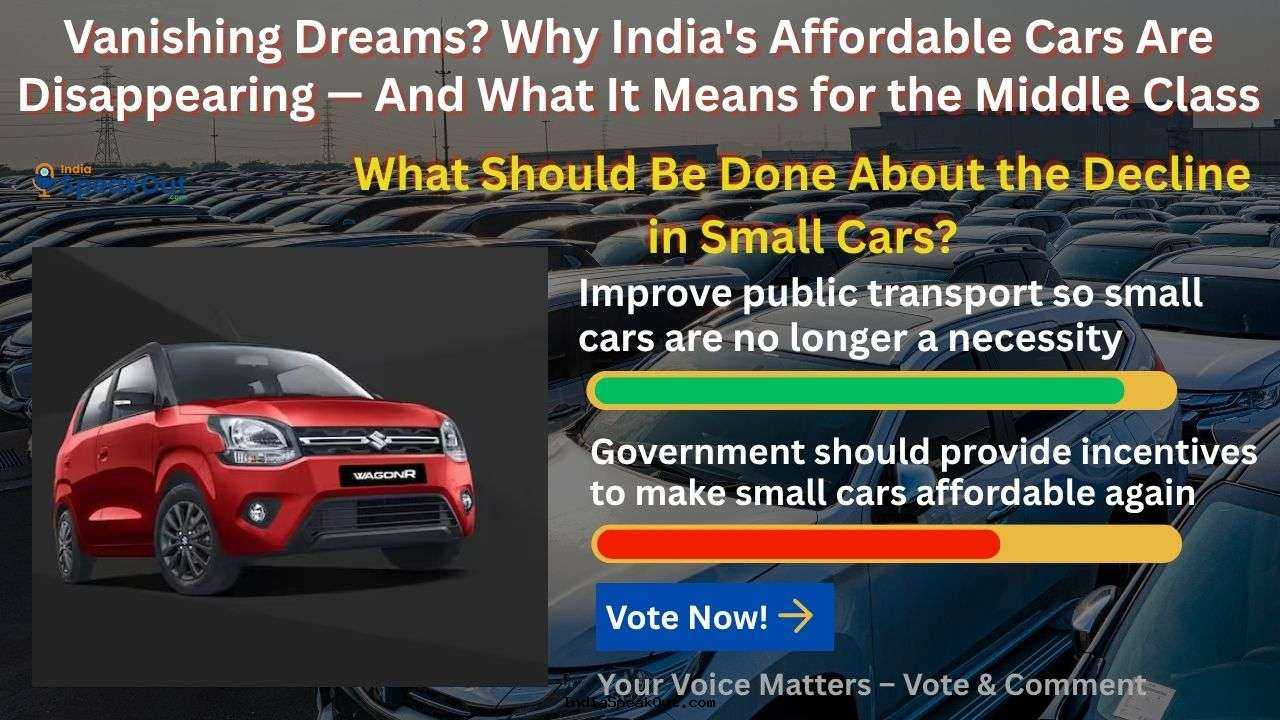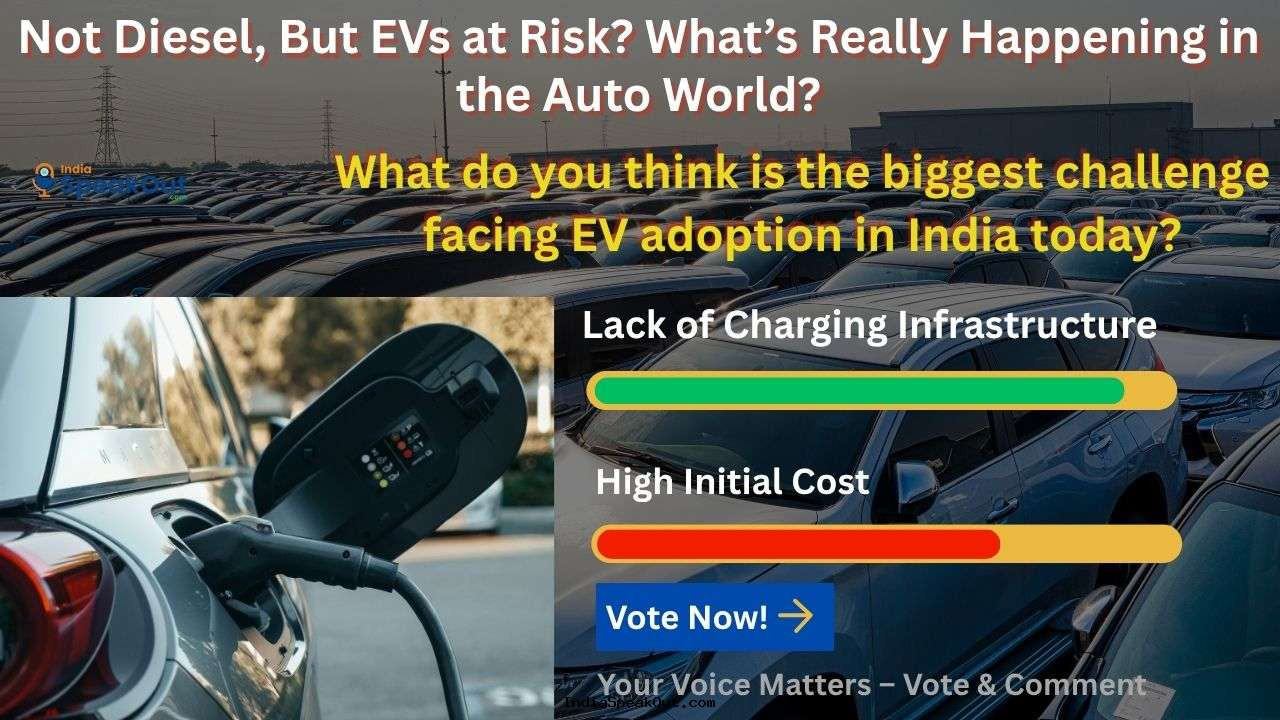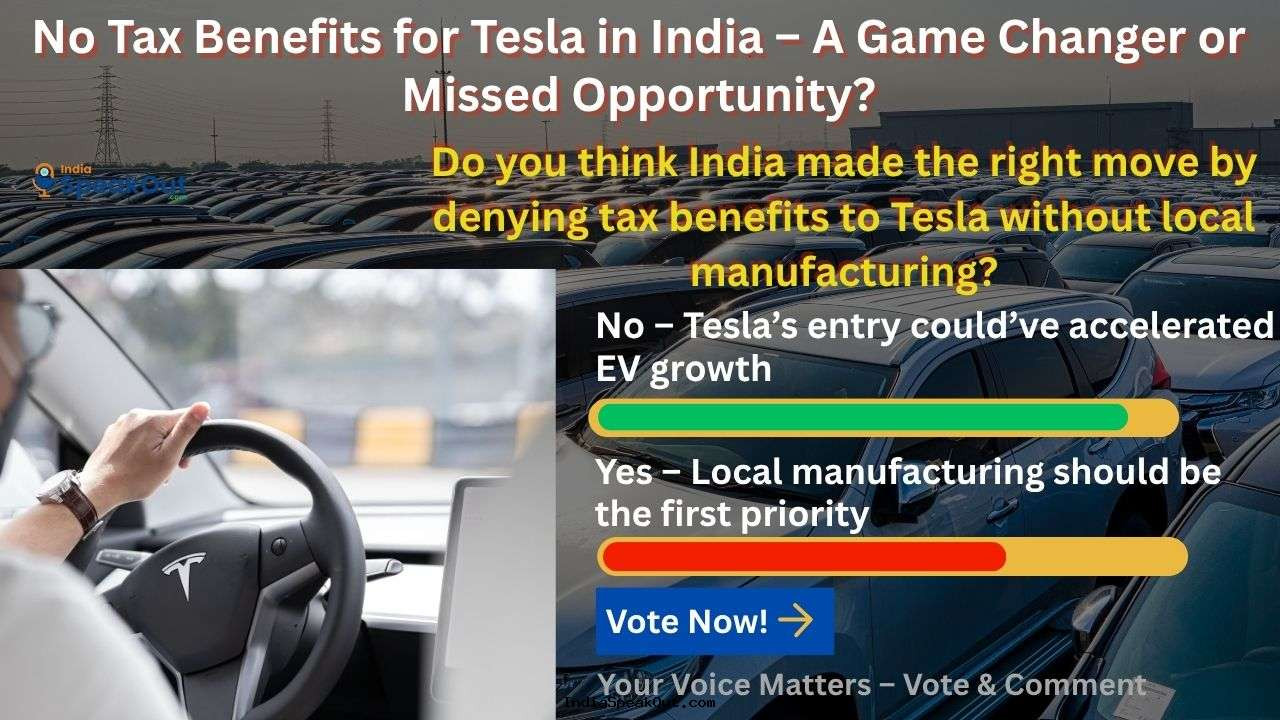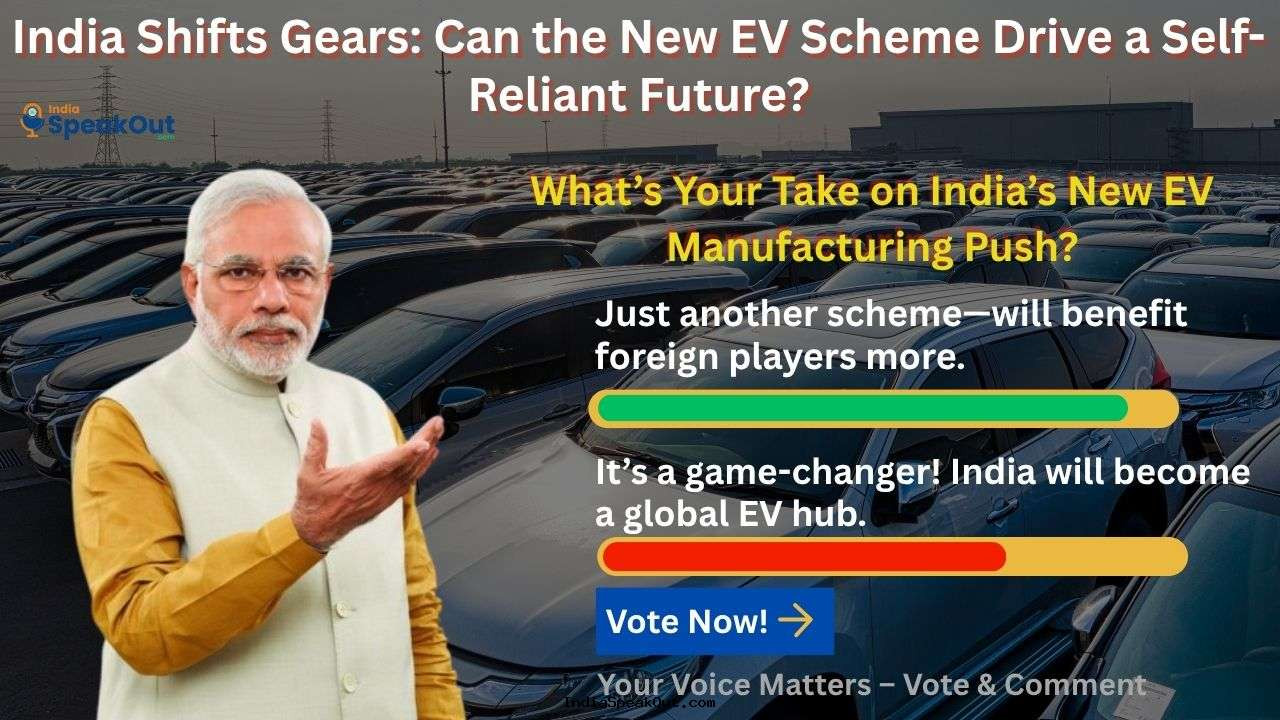India’s small car segment — once the lifeline of mobility for the burgeoning middle class — is on life support.
Maruti Suzuki, India’s largest carmaker, is appealing to the government for support as the sales of small cars have plummeted drastically. Once dominating over 70% of the market, these cars now make up less than 25% of new car sales.

The reasons? Stringent safety and emission norms, rising input costs, and shifting consumer preferences toward SUVs. Ironically, these regulations — meant to improve vehicle quality and reduce emissions — have priced the very consumers they were supposed to protect out of the market.
The decline in small cars is not just a corporate problem. It’s a societal shift. For millions, the dream of owning a car is tied to economic progress, mobility, and independence. If small cars fade away, does car ownership also become a luxury again?
While Maruti Suzuki calls for government intervention — such as reduced taxes or incentives — critics argue whether taxpayers should bear the burden to protect an outdated segment. But if we’re truly serious about inclusive growth and equitable mobility, maybe this isn’t just about saving cars. It’s about preserving access.
🗳️ Vote and see where others stand!
📣 What do you think? Is the fall of small cars a warning sign for middle-class mobility, or is it just evolution in motion? Share your thoughts in the comments — your perspective matters.








Comments(0)